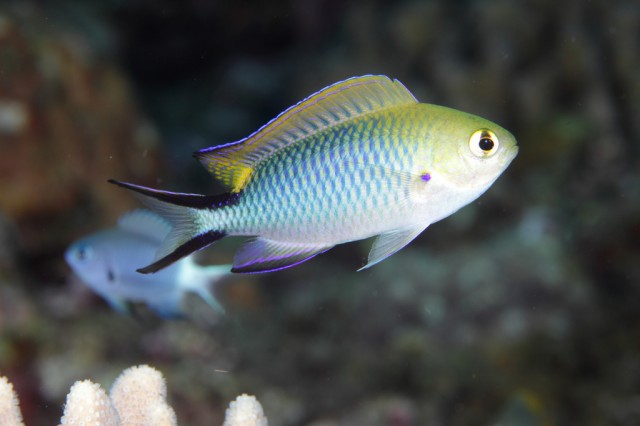Fish unable to rapidly adapt to ocean acidification
Ars Technica » Scientific Method 2014-10-10

Apart from strengthening the greenhouse effect, our emissions of carbon dioxide also affect the chemistry of the oceans. When CO2 dissolves in water, it lowers the pH, which makes it more difficult for organisms to make calcium carbonate shells. The low pH also has some direct physiological effects on other marine organisms like fish. The big question mark for the future is whether these organisms can adapt or evolve to better deal with a higher-CO2 world. A new study in Nature Climate Change digs into the adaptation part of that question.
The study, led by Megan Welch at James Cook University, follows up on a previous experiment we covered in 2012. In that work, researchers put spiny damselfish hatchlings in tanks with varying levels of CO2 and tested several behaviors.
First, researchers put the fish in a split tank with one side containing the odor of a predator, and then they measured how much time the fish spent in each side. High CO2 made the animals much less likely to avoid the predator cue.
Read 11 remaining paragraphs | Comments